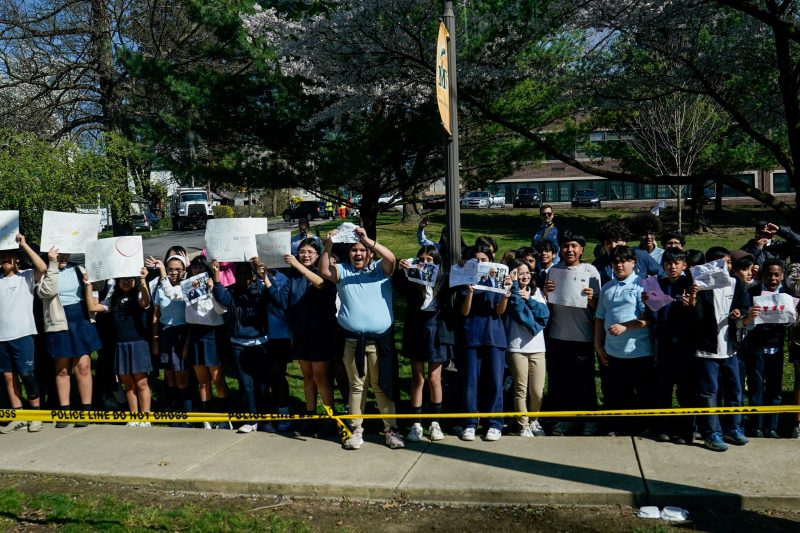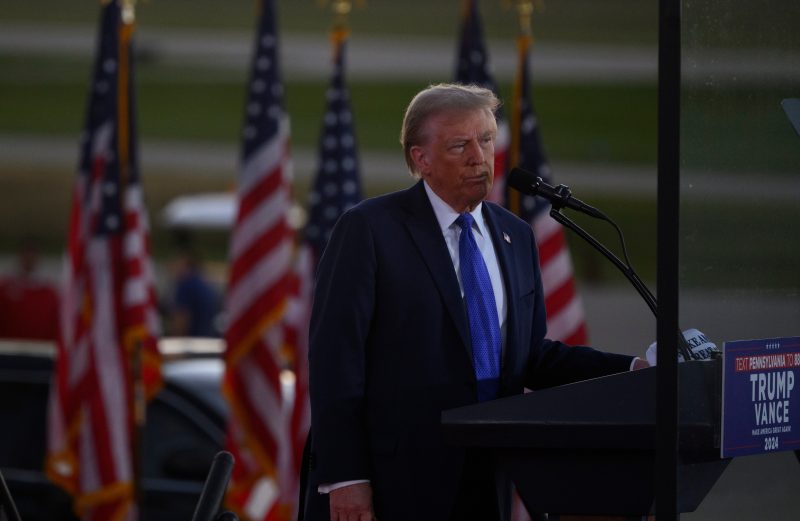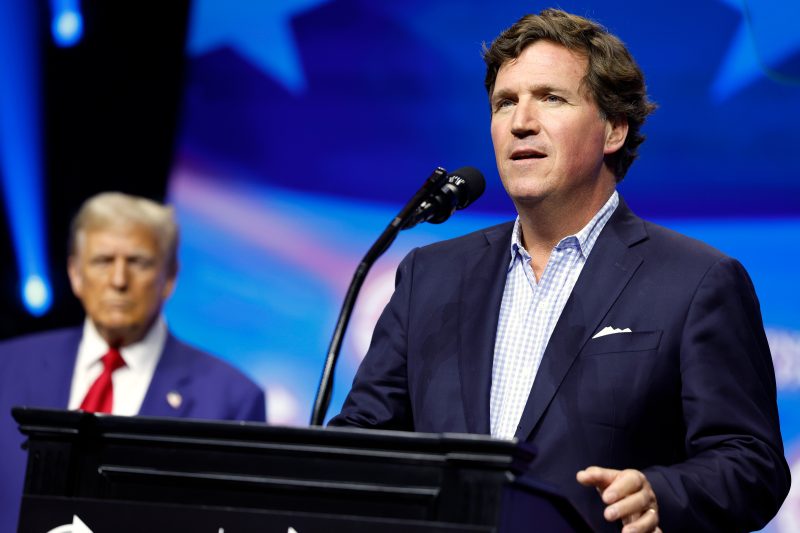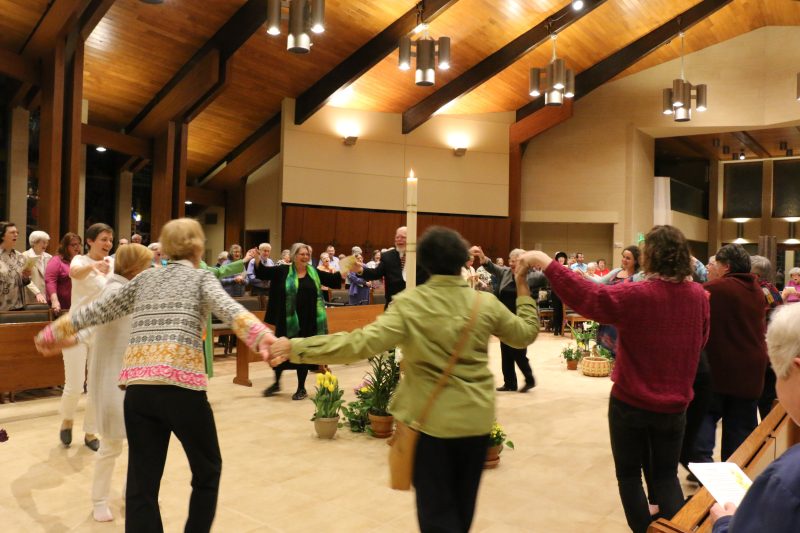
In Pa., Biden’s challenge is highlighted by protests from both sides
As President Biden visited his childhood home in Scranton, Pa., this past week, pro-Palestinian protesters gathered nearby chanting, “Genocide Joe has got to go!” That night, at his hotel, a group of similarly minded demonstrators banged drums, played loud music and used a loudspeaker until 12:15 a.m., yelling slogans including, “Wake up, sleepy Joe!” and “I am your nightmare, Biden!”
At a another site where Biden was speaking in Scranton, a very different group of demonstrators assembled, these backing Donald Trump. They held signs reading “Joe Biden: You’re Fired” and waved flags bearing the former president’s name. Asked by a local news host about the proliferation of pro-Trump signs across Pennsylvania, Biden bristled: “Well, you haven’t been driving in the right places, pal. … He has no presence here.”
At other times, Biden faced much friendlier terrain during his three-day swing through Pennsylvania, as large pro-Biden crowds materialized and supporters shouted, “Four more years” or “We love you, Joe.” One group held a sign reading “Scranton Loves Joe!”
The question for Biden, as he throws himself in earnest into winning a state that means an enormous amount to him personally and politically, is how all these roiling sentiments will play out in November, in Pennsylvania and across the country. In many ways, Pennsylvania is a microcosm of the United States — a Democratic operative once famously described it as two metropolitan areas with Alabama in between — and strategists will be paying close attention to the state’s Democratic and Republican primaries Tuesday for clues on which party has momentum.
“Look, you’re my ticket to the White House: you, Pennsylvania,” Biden told a group of campaign workers in Philadelphia on Thursday. “No, it’s not hyperbole. You’re the ticket to the White House.”
Polls show the race essentially tied between Biden and Trump, and both campaigns expect the state — which went for Trump by 0.72 percent in 2016 before swinging to Biden by 1.17 percent in 2020 — to come down to the wire in 2024.
In a recent memo on Pennsylvania, Biden campaign manager Julie Chavez Rodriguez stressed that Democrats have won statewide races there in 2018, 2020 and 2022, as voters turned sharply against Trump’ policies from abortion to election denialism.
But Biden’s visit highlighted his challenge as an incumbent at a time when many voters are worried about the economy and the country’s direction, while others oppose his position on Gaza, and the nation overall is deeply polarized. Speaking to supporters in Scranton on Tuesday, Biden mused about the level of animus he has faced around the country.
“I’ve never thought I’d see a time when I’m going through a neighborhood, or a rural town that’s in the West, and see big signs that have a Trump sign in the middle that says ‘F Biden,’ and having a little kid standing with his middle finger — 7 years old, 8 years old,” Biden said. “Well, I promise, it happens all the time. It’s not who we are.”
David Urban, a Republican strategist who led Trump’s successful effort to flip Pennsylvania in 2016, said his travels through the state have convinced him that Biden is struggling with its residents, many of whom blame him for the high cost of living and for policies they see as hostile to the local energy industry.
“The current president is pushing a big rock up a hill, trying to convince people things aren’t as bad as they are,” Urban said.
This past week, Biden was pushing hard.
He unleashed a populist speech in Scranton. He embraced unions while addressing steelworkers in Pittsburgh. He made stops at Sheetz and Wawa, a nod to the hometown convenience stores whose respective merits are hotly debated, as well as to the kind of retail politicking aides say will be pivotal to helping the 81-year-old president connect with skeptical voters.
And Biden ended his trip Thursday by visiting a majority-Black neighborhood in Philadelphia, where he accepted an endorsement from family members of his most prominent third-party rival, Robert F. Kennedy Jr.
As Biden’s birthplace and the largest battleground state — home to a crucial 19 electoral college votes — Pennsylvania looms large in the president’s personal and political backstory. It’s a state both Democrats and Republicans view as crucial to victory, and it stands as a key test of whether everyday Americans believe his performance as president warrants another term.
That’s a big part of the reason Biden has spent so much time in Pennsylvania, which has the added benefit of being close to both Washington and his home state of Delaware.
Like Biden, who has already traveled to the state a handful of times this year, Trump, the presumptive Republican nominee, has also prioritized Pennsylvania. His aides and allies see it as a central pillar in their push to knock down Democrats’ venerated “blue wall” of Michigan, Wisconsin and Pennsylvania — as Trump did in 2016 but not in 2020.
With a population of about 13 million consisting of large urban centers, fast-changing suburbs, millions of blue-collar workers and vast rural stretches, Pennsylvania reflects many of the trends upending the nation’s political landscape. Since 1960, no Democrat has won the presidency without carrying the state.
At a recent rally ahead of his criminal trial in New York, Trump told a large crowd in Schnecksville, Pa., that Biden is responsible for high inflation, global instability and a general malaise hanging over the country.
“All of America knows that the real blame for this nightmare lies with one person: Crooked Joe Biden,” Trump said. “That’s why the people of Pennsylvania are going to tell Crooked Joe, ‘You’re fired. Get out. You’re fired.’”
Biden’s swing through the state offered a glimpse at how he will respond to such attacks, as aides noted that he made a point of addressing several constituencies that helped propel him to the White House in 2020.
On Tuesday, the president visited his childhood home after giving a speech contrasting his view on taxes with that of Trump, saying he represents the scrappy values of Scranton while Trump reflects the money-focused morals of Mar-a-Lago in Florida. His pitch to the United Steelworkers union Wednesday featured a populist pledge to protect American industry from unfair foreign competition, including by tripling tariffs on Chinese-made steel if necessary. He also took a jab at Trump, joking that the former president — who was in New York facing a court trial — was “busy right now.”
His speech at the Martin Luther King Jr. Recreation Center in Philadelphia on Thursday targeted the city’s large population of Black voters. John White Jr., a former state representative and civil rights leader, introduced Biden by praising his record of boosting “Black livelihoods,” and the president was accompanied around town by Mayor Cherelle Parker (D).
Throughout the trip, Biden played up his personal connection to the state, where first lady Jill Biden grew up — she often mentions her attachment to Philadelphia sports teams — and where the Bidens had their first date. He talked about launching his 2020 campaign in Pittsburgh and turning to Philadelphians to bolster his Senate campaigns over the years. He said he had been dubbed Pennsylvania’s “third senator” because of how often he was on the news in Philadelphia, which shares a media market with his hometown of Wilmington.
At the same time, the Biden campaign unleashed a blitz of advertising targeting key groups in the state, including Black residents and Hispanic voters from Puerto Rico and the Caribbean, as well as a ramped-up ground operation aimed in part at holding down Trump’s margins in rural and exurban parts of the state. The Trump campaign’s on-the-ground presence is more limited than Biden’s effort, which now includes more than a dozen offices and a mix of paid staff and volunteers.
That advantage in fundraising and campaign infrastructure will pay dividends for Biden down the road, said Brendan McPhillips, a senior campaign adviser who managed Biden’s 2020 race in Pennsylvania and the successful campaign of Sen. John Fetterman (D-Pa.) in 2022.
“The gap is huge between what the president’s campaign has been doing and is doing right now, versus Trump, who has come into the state once or twice for very brief visits,” McPhillips said, adding that the Biden campaign plans to open another dozen Pennsylvania offices, including in some Trump-friendly areas, in the coming months.
But for Trump’s allies, the negative emotions sparked by Biden during his visit suggest he will struggle to hit his marks in the parts of the state where he needs a strong turnout to overcome Republicans’ dominance in rural counties.
“This ’24 race feels way more like ’16 than ’20,” Urban said. “The antipathy toward Biden — I won’t say it’s the same as it was toward Clinton, but it’s definitely present. The chants of ‘FJB’ are louder than they’ve ever been.”
Like Hillary Clinton, Biden has faced public blowback from progressive voters. His support for Israel’s military campaign in Gaza, in particular, has cost him support from key voting groups, including many young people, Arab Americans and some Black voters.
In Pennsylvania, organizers are aiming to persuade some 40,000 voters to write in “uncommitted” rather than voting for Biden during Tuesday’s primary. Given Pennsylvania’s tight margins, even a small number of defections in November could tip the race.
Biden’s team hopes the state’s voters are listening more to other voices, like those of the Kennedy family members who gathered to support him in Philadelphia on Thursday.
“We want to make crystal clear our feeling that the best way forward for America is to reelect Joe Biden and Kamala Harris for four more years,” Kerry Kennedy, daughter of the late Sen. Robert F. Kennedy (D-N.Y.), said at that event. “President Biden has been a champion for all the rights and freedoms that my father and uncle stood for.”



